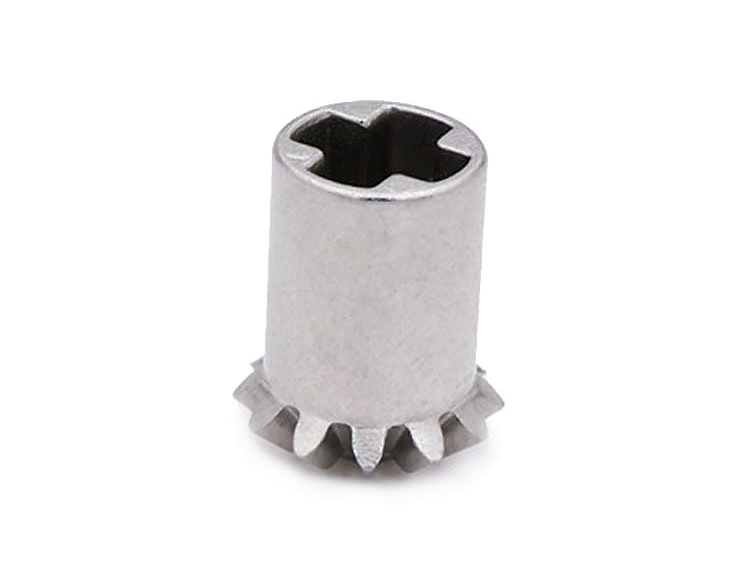Advanced Lock Mechanisms: Securing Properties with Powder Compression Molded Parts
Introduction
Lock mechanisms are vital for ensuring the security and protection of properties, ranging from residential buildings to high-security commercial facilities. The effectiveness of locks hinges on their internal components' precision, durability, and reliability, which must consistently withstand mechanical stress, wear, and potential tampering.
Among modern manufacturing techniques, Powder Compression Molding (PCM) produces high-precision, durable lock mechanism components. PCM delivers exceptional strength, dimensional accuracy, and intricate designs, making it ideal for advanced locking systems that require consistent performance under demanding conditions.
Powder Compression Molding: Precision in Lock Component Manufacturing
Powder Compression Molding involves compressing finely selected metal powders under significant pressures (200–800 MPa) within precision molds. This process begins with the meticulous preparation of metal powders to achieve uniform particle distribution and chemical consistency, which is critical for the mechanical performance of lock components.
Next, powders are compacted to form highly precise intermediate forms known as "green compacts," which maintain dimensional tolerances within ±0.05 mm. Such precision ensures seamless integration into advanced locking mechanisms, significantly enhancing their reliability, smooth operation, and security performance.
Subsequently, green compacts undergo sintering—a controlled high-temperature process (typically 1,100°C–1,300°C)—bonding powder particles and achieving densities nearing 99%. Sintering drastically reduces porosity and enhances mechanical strength, wear resistance, and durability, critical for lock components subjected to repeated mechanical engagement and potential tampering attempts.
Finally, precision post-processing operations, such as CNC machining, deburring, and surface finishing, refine the lock components, guaranteeing exact dimensional accuracy, smooth operation, and superior integration into advanced locking systems.
Typical PCM Materials for Advanced Lock Components
Material choice significantly impacts lock mechanism components' performance, durability, and security level. PCM accommodates various high-performance materials ideal for advanced lock systems, including:
Low Alloy Steel (8620, 4140): Grades 8620 and 4140 deliver exceptional mechanical strength (700–800 MPa), toughness, and wear resistance, ideally suited for lock tumblers, deadbolts, and internal structural components subject to high wear.
Stainless Steel (304, 316L): Grades 304 and 316L provide excellent corrosion resistance, essential for lock mechanisms installed in outdoor or harsh environments. Particularly, Grade 316L, with molybdenum, offers superior corrosion resistance, enhancing long-term reliability and security.
Tool Steel (H13, D2, A2): Grades H13, D2, and A2 offer outstanding hardness (above HRC 60), wear resistance, and dimensional stability, making them optimal for precision lock cylinders, pins, and high-security internal components.
Surface Treatments Enhancing Advanced Lock Component Performance
Surface treatments significantly improve corrosion resistance, durability, and mechanical performance of PCM-produced lock components. Common treatments include:
Electroplating (Nickel, Zinc): Thin metallic coatings (5–25 microns) enhancing corrosion resistance, wear durability, and smooth operation, ideal for exposed lock components.
Phosphating: Forms durable protective layers, enhancing corrosion resistance, lubrication retention, and reducing friction—crucial for internal lock mechanisms.
Black Oxide Coating: Produces a thin protective oxide film (1–3 microns), improving corrosion protection, wear resistance, and the visual appeal of lock components.
Heat Treatment and Case Hardening: Enhances surface hardness, wear resistance, and structural durability, essential for lock parts undergoing repeated mechanical stress and potential tampering.
Advantages of PCM for Advanced Lock Mechanisms
PCM manufacturing provides substantial benefits for lock component production, significantly enhancing security:
High Dimensional Precision: Exceptional accuracy (±0.05 mm) ensures precise mechanical alignment, smooth operation, and enhanced security performance.
Superior Structural Integrity: High-density components provide excellent strength, durability, and resistance to forced entry attempts or tampering.
Cost-Effective Mass Production: PCM’s reduced material waste and efficient production support affordable, large-scale manufacturing of complex lock components.
Complex Geometries: PCM accommodates intricate designs, allowing optimized lock component structures tailored for specific high-security applications.
Sustainability: Minimal waste and recyclable materials support environmentally responsible manufacturing practices.
Considerations in PCM Manufacturing of Lock Components
Optimal PCM results require attention to key manufacturing considerations:
Powder Quality: Uniformity and purity directly influence component strength, durability, and corrosion resistance.
Precision Mold Design: Robust molds ensure dimensional accuracy throughout production cycles, crucial for reliable lock assembly.
Controlled Sintering Parameters: Accurate sintering conditions guarantee consistent component density, mechanical strength, and surface quality.
Comprehensive Post-Processing: Accurate machining and finishing operations ensure optimal performance, smooth operation, and seamless integration.
Applications of PCM Advanced Lock Components
PCM-produced lock components reliably secure diverse properties, enhancing security and performance across applications such as:
Residential Door Locks: Robust deadbolts, cylinders, and tumblers provide enhanced security against forced entry.
Commercial Security Systems: Precision lock cylinders, internal components, and security pins offer high resistance to tampering and unauthorized access.
Electronic and Smart Locks: Durable mechanical components designed to ensure consistent electronic actuation and secure physical locking mechanisms.
Industrial Locking Systems: Reliable high-strength components suitable for harsh environmental conditions, protecting valuable assets.
Safe and Vault Lock Mechanisms: High-security internal components with enhanced hardness, precision, and tamper resistance.
FAQs:
How does Powder Compression Molding enhance the security and durability of lock components?
What materials are best suited for manufacturing advanced lock mechanisms with PCM?
What surface treatments improve the performance and lifespan of PCM lock components?
What critical manufacturing considerations are involved in producing high-quality PCM lock parts?
Which locking system applications benefit most from PCM-manufactured advanced components?

